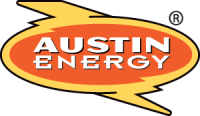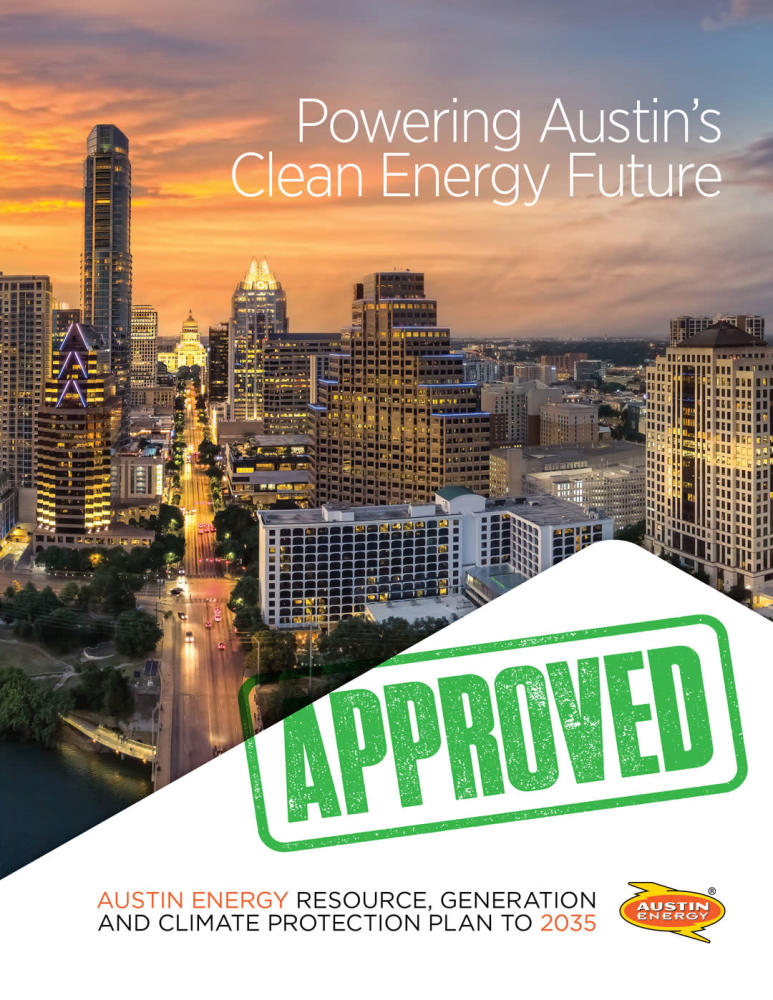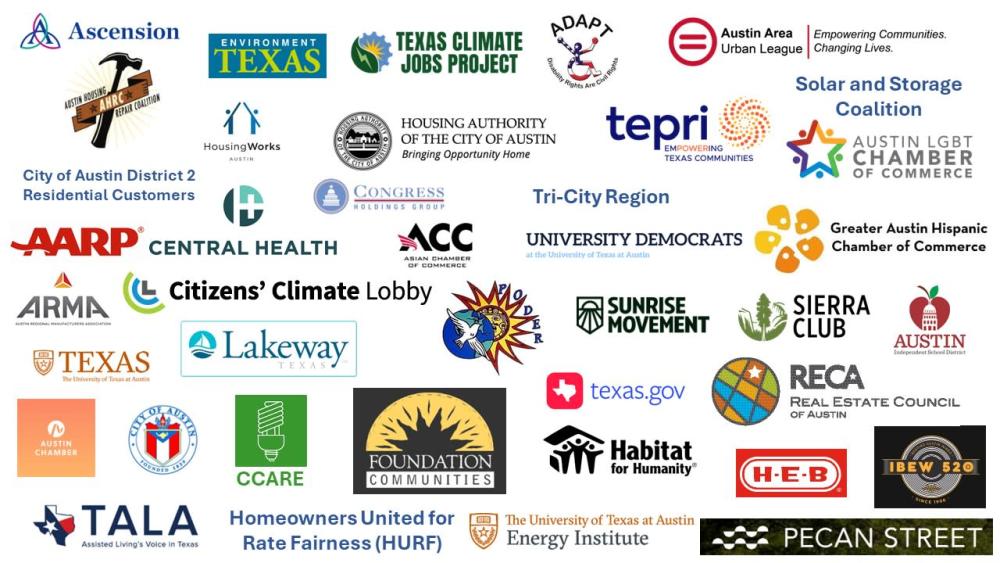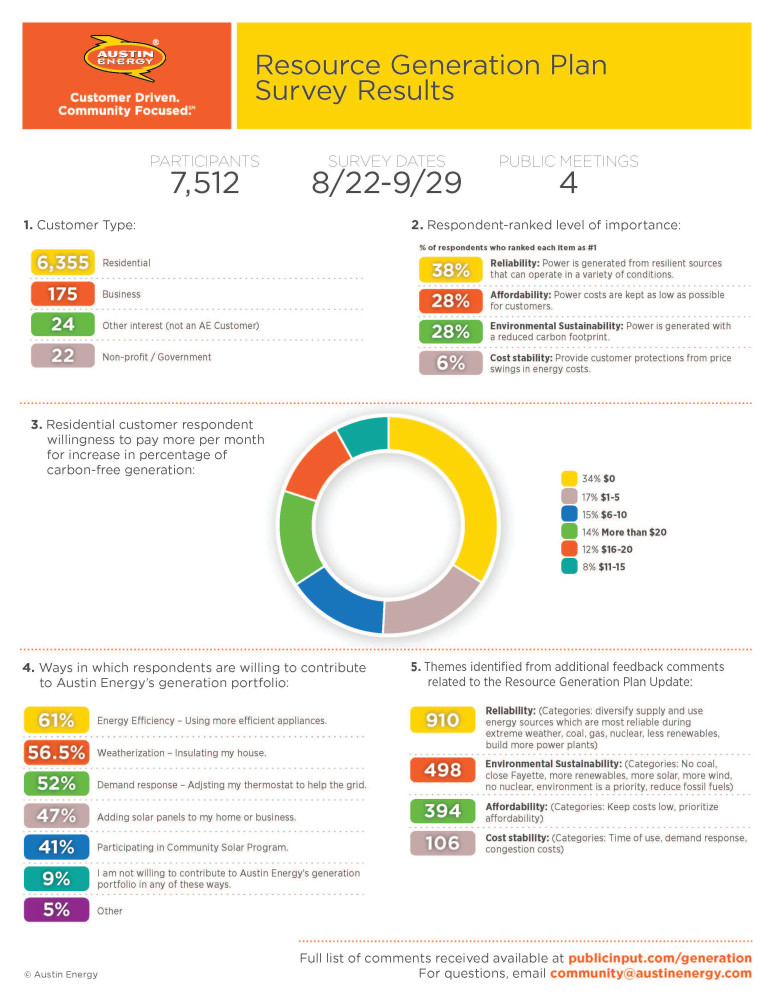Austin Energy Resource, Generation and Climate Protection Plan 2035
Austin Energy Resource, Generation and Climate Protection Plan 2035
Austin Energy is dedicated to creating a sustainable energy future through its Resource, Generation, and Climate Protection Plan to 2035. This forward-looking plan is designed to align with our community's climate goals while ensuring reliable, affordable energy that reflects our shared values and priorities. By expanding renewable energy, reducing carbon emissions, and centering equity, Austin Energy is working to build a cleaner, more inclusive energy future that benefits everyone. The development of the Resource, Generation, and Climate Protection Plan to 2035 is currently in progress, with a City Council vote anticipated Thursday, Dec. 12, 2024.
Below, you’ll find a collection of resources and updates about the plan’s development and progress.
Community Involvement
Austin Energy collaborated with a diverse group of community stakeholders to gather what they would like see represented in the plan by identifying objectives, challenges, and values. The organizations collectively represent hundreds of thousands of individuals in the Austin and surrounding areas served by Austin Energy.
Community Workshop #1: The purpose of Workshop #1 was to gather initial feedback and input from local stakeholders to begin identifying community values, priorities, and metrics.
Password: JuJ4HjP5
Community Workshop #2: The goals of Workshop #2 were to have the participants have a general understanding of ERCOT and its relationship to Austin Energy and to hear from Dr. Michael Webber with the Webber Energy Group from the Cockrell School of Engineering at UT Austin regarding Texas and Austin-area energy markets and trends, resource options, and potential risks and tradeoffs.
Community Workshop #3: The goals of Workshop #3 were to have participants explore trade-offs between affordability, reliability and environmental sustainability, and to discuss equity as it relates to how those three affect the most vulnerable.
Community Workshop #4
Password: Gm3R8HPH
Resource Generation Plan Survey Results
In August 2023, Austin Energy invited customers to provide feedback on energy generation options and priorities. Thank you to all who participated in Austin Energy’s Resource Generation Plan Survey. The summary of results is presented below and a full list of comments received is available here. Please note all responses to question five are in their entirety, with redactions limited to personal information of respondents and some explicit language.
Previous Resource Plan Reference
Austin Energy Utility Oversight Committee
The Austin Energy Utility Oversight Committee reviews issues related to the City's electric utility. The Austin Energy Utility Oversight Committee is a committee of the whole council.
AEUOC Meeting – April 30th
Resource Generation Plan Process Update
Stakeholder Engagement - Rifeline
AEUOC Meeting – July 16th
Development of the Resource Generation Plan to 2035
Workshop #1 Overview - Rifeline
AEUOC Meeting – September 24th
Workshop #2 & #3 Summary – Rifeline
Considerations for Austin Energy Resource, Generation and Climate Protection Plan to 2035 – Dr. Michael Webber
Electric Utility Commission (EUC) Collaboration in Modeling
The Electric Utility Commission is an advisory board made up of 11 members appointed by the Austin City Council. The group reviews Austin Energy’s policies and procedures and provides recommendations to City Council. This partnership is one of the ways our community has a voice in how we serve them. In this resource planning process, the EUC actively participated in shaping the 2035 Plan.
- EUC Meeting March 18th
- Resource, Generation, and Climate Protection Plan Update
- EUC Meeting April 15th
- EUC Meeting May 13th
- EUC Meeting June 10th
- Resource Generation Plan to 2035 June Update
- Workshop #1 Overview - Rifeline
- EUC Meeting – July 15th
- Modeling Framework
- Ascend Introduction
- EUC Meeting – August 12th
- Considerations for Austin Energy Resource, Generation & Climate Protection Plan to 2035 – Dr. Michael Webber
- Workshop #2 Overview – Rifeline
- Model Portfolios, Scenarios, and Sensitivities – Austin Energy
- EUC Meeting – September 9th
- EUC Meeting (Special Called) - September 30th
- Portfolio Modeling Results – Austin Energy
- Evaluating Options for Austin Energy Portfolio Through 2035 – Ascend Analytics
- EUC Meeting - October 21st
EUC Meeting - November 18th
Community Values & Objective Statements
EUC Survey
Toolkit
Webber Energy Group
To expand our scope and knowledge, Austin Energy partnered with the Webber Energy Group to give us its analysis of trends in the energy industry. The Webber Energy Group is an energy research team out of the University of Texas at Austin. They focus on bringing scientific methodology and technical expertise to issues around energy and the environment, all to help reach a more sustainable path. For the 2035 Plan, the Webber Energy Group looked at the drivers of increasing power demand, the need for more power supply because of that increase and the challenges of decarbonization while addressing those needs. Dr. Webber states that effective policy design will keep tradeoffs in mind and will be standards-based rather than prescriptive.
Texas Energy Poverty Research Institute (TEPRI)
Austin Energy examined information from the Texas Energy Poverty Research Institute (TEPRI) to get a better understanding of energy equity in and around our area. Specifically, we looked at the Community Voices in Energy Survey (CVES). One of the objectives of the CVES is to provide “data-driven insights to inform stakeholders such as utilities, government agencies, policymakers, and community-based organizations in developing solutions to improve energy access for Texans.” The CVES surveyed more than 6,500 households, mostly low- to moderate-income, across Texas on four key electric-related issues: affordability, sustainability, reliability and resiliency.
Electric Industry Educational One Pagers
The following brief documents focus on technologies, risks, and other topics that are relevant to the Resource Generation Plan to 2035 effort. Written by Austin Energy, they contain a summary of general industry facts as well as specifics relevant to Austin Energy and the ERCOT market.
Electric Power Research Institute (EPRI)
In March and May of 2024, EPRI executives visited with Austin Energy executive team members to discuss the clean energy transition facing the electric utility sector with an emphasis on technology solutions and their expected timelines for adoption. In support of the current Resource Generation Plan work Austin Energy is releasing the two presentations provided by EPRI , highlighting key EPRI points and including additional comments relating the material to the ongoing Resource Generation Plan. While EPRI’s view is nation-wide, many of their points are applicable in the ERCOT region.



